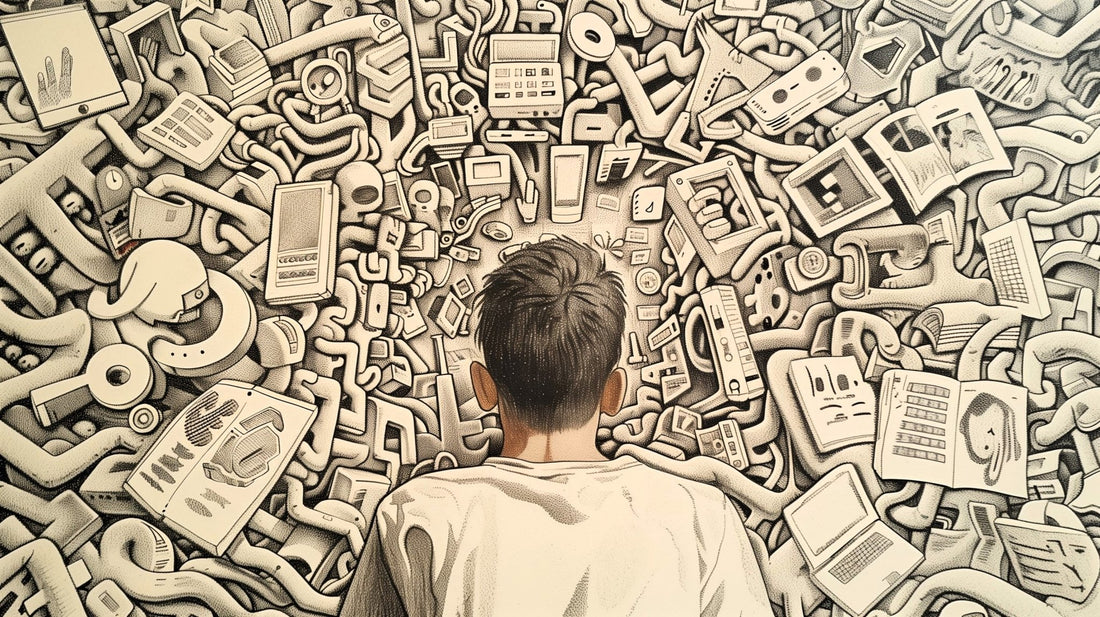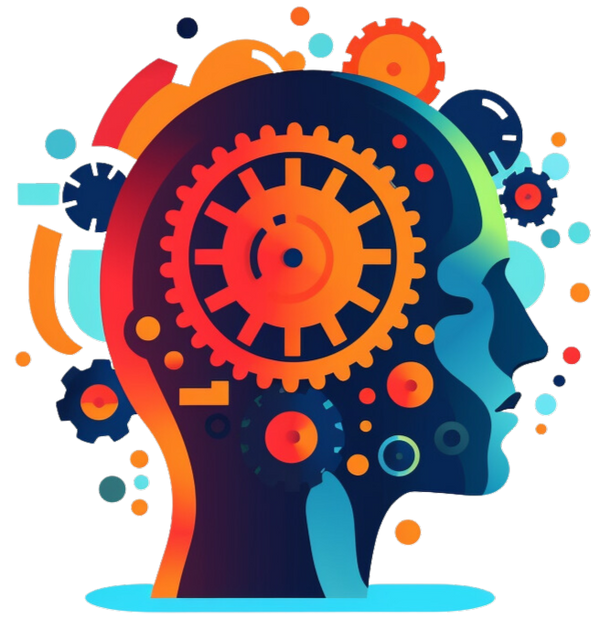
Inattentive ADHD and me
Share
Fidgeting, being loud, being conspicuous: The image of the hyperactive ADHD sufferer is familiar. ADHD-I, the inattentive type, is less so. A chronicle of a silent suffering.
This blog is a mix of my own experiences—and the translation of other texts by English-speaking authors. Why all the confusion? On the one hand, I'm lacking the energy to blog right now—and I'd like to make things a little easier. On the other hand, the experiences of people with ADHD-I, or "inattentive type," are so similar that they're almost interchangeable at times.
I received my ADHD diagnosis shortly before the end of a long-term relationship, at the age of 38 or 39. It was a relief—because the diagnosis had been preceded by certain excursions into—let's say—"not-so-healthy substances." It must be said that substances that make neurotypical people dance all night long simply have a calming, soothing, and balancing effect on those with ADHD, up to a considerable dose.
Whatever is done, give a fighter pilot enough amphetamine, and he'll be wide awake and functioning like a machine for many hours. Do the same to someone with ADHD, and you run the risk of them napping at the controls. Even a double espresso before bedtime is no problem at all.

The Daydreamer: Characteristics of Inattentive ADHD
Inattentive ADHD, simply put, means your brain doesn't know what to focus on. This is the daydreaming kind of ADHD—not the kind where you just can't sit still. It's not that you can't concentrate at all. Things that are super urgent or extremely absorbing can even send you into a state of hyperfocus. But then you might also forget to notice anything else going on around you—or even keep appointments that don't come with a loud alarm.
"Ha, we all have that problem with interest!" the smartasses like to chime in at this point. No, it doesn't – not to this enormous extent. You can find out more about this, specifically about the roughly two attention centers in the brain, in this article here .
People with ADHD-I are daydreamers par excellence. The "Jack-o'-the-box," the "window children," and the "fantasists." At the same time, they easily and instantly connect ideas from various subject areas, something many neurotypicals only achieve with a mind map and a considerable amount of time.

Routine work: The silent death in installments
For people with inattentive ADHD, repetitive tasks are so boring that they become mentally exhausting and ultimately stressful or even painful. But when you're working on the tasks you're passionate about, you can barely see or hear anything from the outside world for eight hours.
You also have a poor working memory. Your ability to hold two or three pieces of information in your head at once and then act on it later is limited. If you're typing on your computer and someone asks you to remember to call someone, you might nod and say "yes." You might also actively try to remember it—but the information will never be stored. Take two things with you on the bus, but don't let go of them. Things that end up in the overhead compartment or on the seat next to you will often continue on their journey without you. As someone with ADHD-I, you could afford long Caribbean holidays with the equivalent of the things you've already left behind in your life.
Your long-term memory, on the other hand, can be excellent. Remembering the plot of a movie from 30 years ago? No problem, if the film was somewhat exciting. A vivid recollection of a conversation you had with your partner five years ago? Yes, that too – if it had some emotional significance.

If the conductor doesn't do his job...
Also associated with ADHD-I is a weakness in prospective memory. Prospective memory is about remembering well. The problem with tasks is that they usually have to be completed at a specific time.
"I have to pay this bill when I get home."
"I have to pack my lunch when I go to work."
"I have to go to the post office at lunchtime."
With inattentive ADHD, you store this information like an answer to a trivial question, not like a note in a journal. So even if I've reminded myself several times to pack my lunch before heading to work, the thought often just doesn't cross my mind afterward.
Executive functions are also often deficient in people with ADHD-I . This means that the brain is really bad at guiding you through a series of subtasks to complete the main task. While it can perform each subtask well, there seems to be no one in charge to guide you through the individual steps. Executive functions are often referred to as the "conductor of the brain" and are anchored in the prefrontal cortex. Incidentally, head trauma or brain tumors in the frontal lobe can lead to similar cognitive deficits in people without ADHD.

Conclusion: Silent suffering, but no less serious
No, there were no chairs flying around when you were a child. You were never known for being a loudmouth either (ADHD-HI, hyperactive). Maybe you even got excellent grades in school—and later graduated from university or college. But you know the daily chorus of the tiresome search, the constant rush, the petty dramas of lost objects, the criticism of your inattention and/or impulsiveness.
Or you may have experienced one or more depressive episodes before you were finally diagnosed with ADHD . Add to that one or two failed relationships because you weren't diagnosed yet—or your partner didn't give a damn (lack of empathy, selfishness). The main thing is that you function. No, not really. Because we certainly do—but not like the majority (about 95% of people).

Yes, ADHD—even the inattentive type—can ruin a lot of things for you. On the other hand, it can also be an inexhaustible source of great creativity. And in extreme cases, you may develop a fighting spirit that will make many of your fellow human beings pale. Because you give everything for your inner values and tolerate a great deal. It's closer to the Stone Age brain, in fact ("hunter brain"). And somehow, both of those aren't so bad for tackling tomorrow.
